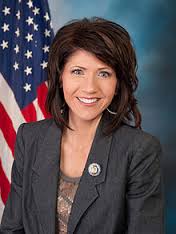
I’ve heard stories like this many times over, even from within South Dakota: A young woman falls behind on rent or faces other financial straits. Someone steps in to help, but the apparent act of kindness comes with certain strings attached. It might begin as a requirement to just “hang out.” Perhaps they begin to date. But then, the threats come – both physical and emotional. A financial reliance has been established – perhaps a drug or alcohol addiction as well – so it’s difficult to find a way out. Within months, maybe even weeks, a supposed friend becomes the victim’s trafficker.
The manipulative control persists, often resulting in multiple run-ins with the law. Many victims are arrested, brought up on charges of conspiracy, money laundering, prostitution or drug trafficking. Even if they’re able to escape the horrors of trafficking, these criminal records can chain them to their past and leave them vulnerable to being exploited or trafficked again.
According to a recent survey by the National Survivor Network, around 80 percent of trafficking survivors surveyed had lost or not received employment because of their criminal convictions. Around half had suffered from barriers to accessing housing. Trafficking survivors deserve a fair shot at rebuilding their lives, but that’s difficult when housing, employment, and education are out of reach.
With this in mind, I helped introduce the bipartisan Trafficking Survivors Relief Act earlier this year. This legislation would create a process in which trafficking survivors with non-violent federal offenses could ask a judge to free them of their records, vacating arrests or convictions that were a direct result of being trafficked. I’m hopeful this legislation will help relieve survivors of the past, open doors for them, and offer a path forward where healing can begin.
If enacted, this bill would build on our accomplishments from last Congress where we passed one of the most comprehensive anti-trafficking packages seen in a decade. The legislation allocated more resources for survivors, offered more tools to go after traffickers and buyers, and put policies in place to prevent trafficking.
The mission to end human trafficking is one that each of us can participate in. I encourage you to familiarize yourself with the signs of human trafficking. Is someone you know not free to come or go as they wish? Are they fearful, anxious, tense or paranoid? Do they appear malnourished or show signs of abuse? Do they lack control over their own money or financial records? These are just some of the indicators a victim may exhibit. To learn more, I encourage you to visit humantraffickinghotline.org.
Additionally, if you or someone you care about is being trafficked or at risk, please call the National Human Trafficking Hotline immediately at 1-888-373-7888. Correspondence with the National Hotline is confidential and you may request assistance or report a tip anonymously.
Those who have been trafficked should be treated as survivors, not criminals. I’m hopeful our latest proposal can help clear the path for them to rebuild their lives.
